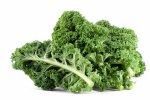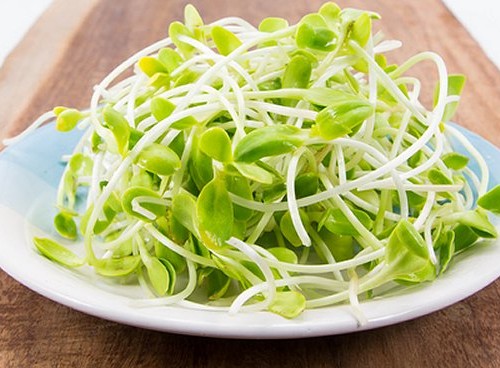Juicing is such a great way to improve your overall health. Of course consuming fruits and vegetables in any form is beneficial but juicing provides an easy way to get them into your daily diet. Juicing also makes it very easy for your body to absorb all of those nutrients.
There are also many health benefits which are associated with particular juicing ingredients. Ideally you want a wide variety of fruits and vegetables to make sure you’re really giving your body everything it needs to stay healthy and prevent disease. You should also not forget about herbs and spices. These are also very beneficial to health and can add a new dimension to the flavor of your juices.
Here are my top 10 juicing ingredients that you should try to include in your juices on a regular basis along with some of their health benefits!
1. Kale

Kale is a low-calorie vegetable that provides vitamins and antioxidants. Lutein is an antioxidant in kale that supports eye health.
Kale is rich in vitamin K which is necessary for blood clotting. Vitamins A and C are present in kale. As an excellent source of potassium, kale is good for muscle and heart health.
Check out my other article: “The Benefits of Juicing Kale” for more info on this awesome green vegetable.
2. Garlic

Like kale, garlic supports heart health. Garlic slows the development of atherosclerosis, hardening of the arteries. Garlic improves the immune system which may help reduce the risk of the common cold and cancer.
Garlic in the diet, such as in juice provides protection against certain cancers while garlic supplements do not.
Take a look at: “Are You Juicing With Garlic Yet?” for more reasons to add garlic to some of your juices.
3. Spinach

Spinach is a good source of vitamin A, vitamin K, and potassium. Juicing spinach can add iron to the diet. Iron is essential for the oxygenation of the blood and cell growth. Manganese is a mineral in spinach that supports bone health and maintains healthy blood sugar levels.
Adding spinach to juice recipes provides calcium and folate. Calcium helps prevent bone degeneration. Folate is especially important for pregnant women since it reduces the risk of birth defects.
4. Tomatoes

Tomatoes contain many vitamins and minerals that our bodies need. Vitamins A, B, C, and K as well as zinc, iron, and potassium are found in tomatoes.
Lycopene is a powerful antioxidant in tomatoes. Research has shown that consuming tomatoes reduces the risk of certain cancers such as colon, stomach, mouth, cervical, and pancreatic cancer.
5. Lemon

Lemons are rich in vitamin C and antioxidants. Vitamin C supports the immune system. Beta carotene in lemons supports eye health and helps protect bones from osteoporosis.
Juicing lemons with the rind can provide a phytochemical known as limonene. This phytochemical can reduce the risk of cancer. However, lemon rind contains oxalates which can pose a problem for people with gout or kidney disease. It’s also not advisable to juice lemon rind unless you’re using organic lemons.
6. Pineapple

Pineapples contain vitamin C, potassium, and B vitamins. Bromelain is an enzyme contained in pineapple that can aid digestion and also has anti-inflammatory properties.
Bromelain can also speed up the healing of bruises and help to reduce swelling.
7. Ginger

Adding ginger to juice recipes can reduce nausea and stomach distress. Ginger can improve the body’s ability to absorb nutrients. Ginger may also help reduce the risk of colon cancer.
Be sure to read my article: “The Benefits Of Juicing With Ginger” to find out more about this amazing spice.
8. Cinnamon

Cinnamon helps the body fight off the common cold and mild bacterial infections. Adding cinnamon to juice recipes may help control blood sugar and reduce joint pain.
Cinnamon may also help reduce the risk of heart disease. Cinnamon is another concentrated source of antioxidants like Ginger.
9. Blueberries

Blueberries have been described as the world’s most perfect food. Blueberries are rich in antioxidants and vitamin C. Juicing with blueberries can help the body overcome urinary tract infections since they contain compounds which fight bacteria in the urinary tract.
Recent studies also suggest that blueberries may help to slow cognitive decline by protecting brain cells. This means that blueberries may help to keep your brain and memory working properly as you age.
10. Mint

Mint has been used as a medicinal herb for thousands of years. It’s a good source of vitamin A and C and contains many minerals such as calcium, iron, selenium and zinc.
It’s extremely beneficial to the digestive system. It’s packed with compounds like menthol, thymol and carvocrol which help to relieve stomach cramps, gas and bloating. Mint may also ease diseases of the colon like Irritable Bowel Syndrome (IBS).
It also has antiseptic and antiviral properties making it useful for treating colds and flu. But don’t forget the taste! Adding mint to your juices is a great way to excite your taste-buds too!!!







No Comments